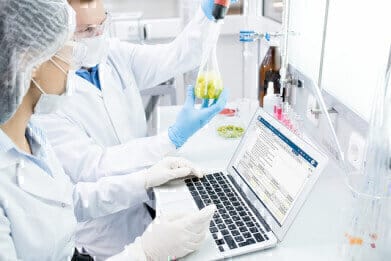
2025 Lab Updates: How Smart Technology Is Transforming Scientific Research
Introduction
In 2025, laboratories around the world are experiencing a technological renaissance. From artificial intelligence–driven automation to quantum-powered simulations and robotic lab assistants, the traditional lab setup has evolved into a smart, data-driven environment. Researchers are now leveraging cutting-edge tools to achieve faster results, more accurate data, and sustainable practices that reduce environmental impact.
This blog explores the latest lab innovations of 2025, including digital lab automation, biotechnology breakthroughs, AI in data analysis, and the global push for green labs.
1. The Rise of the Smart Laboratory
Smart labs are no longer a futuristic concept — they are the new standard. Integrated with IoT sensors, AI-based monitoring systems, and automated workflows, smart labs are revolutionizing how experiments are conducted.
Key advancements include:
- Real-time data collection: Smart sensors track temperature, humidity, and chemical reactions 24/7.
- Remote lab access: Scientists can operate lab equipment and monitor progress from anywhere in the world.
- Error reduction: AI-powered systems detect anomalies and ensure experimental precision.
This digital transformation not only increases productivity but also minimizes human error, making scientific outcomes more reliable.
2. AI-Powered Research and Data Analysis
Artificial Intelligence has become the backbone of modern laboratories. Complex experiments that once took months to analyze can now be processed within hours using AI-driven algorithms.
Applications include:
- Drug discovery: AI models predict molecular interactions and accelerate vaccine and drug development.
- Genomic sequencing: Machine learning decodes genetic patterns faster than ever before.
- Predictive research: AI can simulate potential outcomes before an experiment even begins, saving time and resources.
In 2025, AI isn’t replacing scientists — it’s enhancing their capabilities, allowing them to focus on innovation rather than repetition.
3. Robotics and Automation: The Hands of the Future
The role of robotics in labs has expanded dramatically. Robotic arms now handle dangerous chemicals, perform repetitive pipetting, and conduct tests with unmatched precision.
Examples of current trends:
- Lab automation systems that prepare and analyze samples without human intervention.
- Collaborative robots (cobots) working alongside scientists for safer and more efficient research.
- Automated liquid handlers improving accuracy in pharmaceutical labs.
Automation ensures that scientists spend less time on manual work and more time on critical analysis and discovery.
4. Quantum Computing in Scientific Simulations
Quantum computing is unlocking possibilities that were once impossible for traditional systems. In laboratories, it’s transforming data-heavy research such as molecular modeling, climate prediction, and material synthesis.
Notable use cases:
- Pharmaceutical research: Quantum simulations model how drugs interact with cells at a quantum level.
- Material science: Discovering new superconductors and sustainable materials.
- Chemical reactions: Simulating reactions before physical trials, reducing costs and waste.
Quantum computing allows researchers to test hypotheses virtually, paving the way for faster, more efficient breakthroughs.
5. Biotechnology and Genetic Engineering Advances
2025 marks a golden age for biotechnology. Labs are using CRISPR gene-editing tools and synthetic biology to combat diseases and create new materials.
Innovations include:
- Gene therapy: Treating inherited disorders by modifying faulty genes.
- Bio-sensors: Detecting diseases through DNA-based nanotechnology.
- Sustainable bio-materials: Creating biodegradable plastics from microorganisms.
These biotech breakthroughs not only push science forward but also promise a healthier, more sustainable future for humanity.
6. The Push for Sustainable and Green Labs
Sustainability has become a core focus in scientific research. Modern labs are adopting eco-friendly technologies and practices to minimize environmental impact.
Examples include:
- Energy-efficient freezers and renewable-powered systems.
- Digital data storage replacing paper-based documentation.
- Water recycling systems in biological and chemical labs.
The “Green Lab Movement” of 2025 encourages researchers to innovate responsibly — combining scientific excellence with environmental consciousness.
7. The Global Collaboration Revolution
Research is no longer limited by geography. Thanks to cloud-based lab management systems, scientists can collaborate with peers worldwide in real-time.
Highlights:
- Shared data platforms enable instant sharing of experimental results.
- Virtual lab tours and training sessions make global education more accessible.
- Cross-border research accelerates vaccine development and environmental studies.
This interconnectedness ensures that discoveries made in one part of the world benefit the entire global scientific community.
8. Digital Twins and Virtual Lab Simulations
Digital twin technology — creating a virtual copy of a lab or experiment — is emerging as a powerful tool. It allows researchers to simulate and predict results before physical testing.
Benefits include:
- Reduced experimental errors.
- Lower costs and resource use.
- Enhanced reproducibility of scientific findings.
With VR and AR technologies, scientists can now visualize molecular structures or run virtual chemistry experiments, enhancing learning and precision.
Conclusion
The laboratories of 2025 represent a perfect blend of technology, sustainability, and collaboration. Smart labs powered by AI, robotics, and quantum computing are pushing the boundaries of human knowledge. As these innovations continue to evolve, research will become faster, safer, and more sustainable — leading to discoveries that can transform life on Earth.